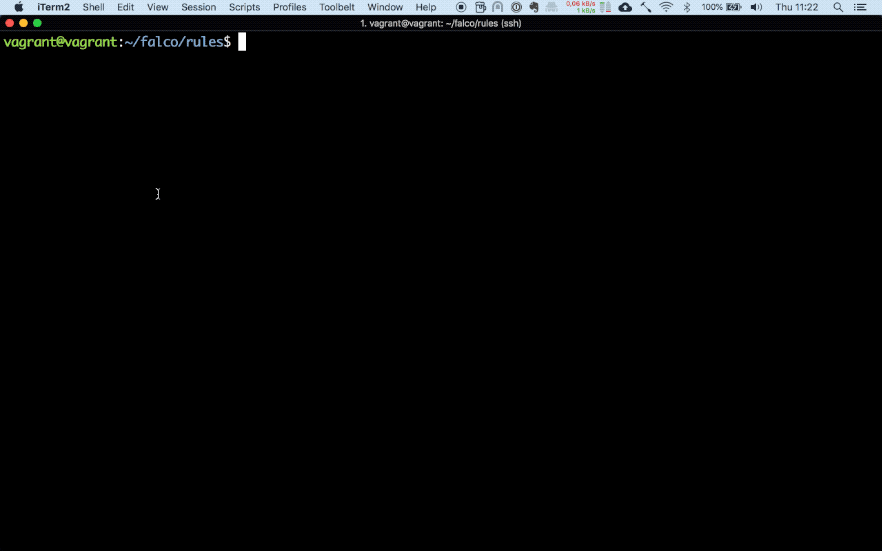Runtime security with Falco
-- Introduction
Lately I've been researching possibilities to detect anomalies during runtime in containers. I came across Sysdig’s open source project Falco which seems to do just that. Quoted from their site: "Falco, the open source cloud-native runtime security project, is the defacto Kubernetes threat detection engine. Falco detects unexpected application behavior and alerts on threats at runtime."
Sounds good..
-- How does it work?
Falco runs as a privileged container and uses eBFP to capture system calls. Events that match a certain filter expression (rule) result in an alert which can be outputted in different ways (for example as a push message to Slack). It comes pre-equipped with a lot of essential rules and has the possibility to be extended with custom rules.Below is a simple example taken from Falco’s manual of a condition that alerts whenever a bash shell is run inside a container.
container.id != host and proc.name = bash
Here is another example of a rule that triggers when an attacker manages to start netcat on a victim’s container.
- macro: network_tool_procs
condition: (proc.name in (network_tool_binaries))
- list: network_tool_binaries
items: [nc, ncat, nmap, dig, tcpdump, tshark, ngrep, telnet, mitmproxy, socat]
- rule: Launch Suspicious Network Tool in Container
desc: Detect network tools launched inside container
condition: >
spawned_process and container and network_tool_procs
output: >
Network tool launched in container (user=%user.name command=%proc.cmdline parent_process=%proc.pname
container_id=%container.id container_name=%container.name image=%container.image.repository:%container.image.tag)
priority: NOTICE
tags: [network, process, mitre_discovery, mitre_exfiltration]To make things more clear, i've made a demo below which shows Falco in action.
-- Set-up Demo
My test set-up consists of two docker containers. One is Falco running as a privileged container and the second one is a vulnerable website built by DVWA running in a separate container. As can bee seen below, once I try to execute a command in the container through command injection in the website Falco matches the event with one of its rules and forwards the alert to Slack.